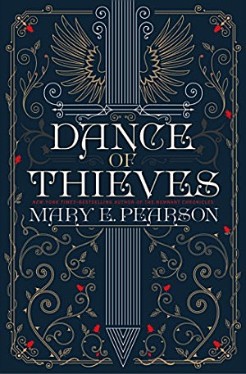The queen had been walking the narrow, dirty streets of the Brightmist quarter when I spotted her. I hadn’t planned it, but even events unplanned can whisk us down paths that we never expected to travel, changing our destinies and what defines us. Kazimyrah: orphan, invisible street rat, girl who defied the queen, Rahtan.
I had already been shoved down one path when I was six, and the day I spit in the new queen’s face I was sent reeling down another. That moment had not only defined my future, but the queen’s unexpected response—a smile—had defined her reign. Her sword hung ready in the scabbard at her side. A breathless crowd had waited to see what would happen. They knew what would have happened before. If she were the Komizar, I would have already been lying headless on the ground. Her smile had frightened me more than if she had drawn her sword. I knew at that moment, with certainty, that the old Venda I knew how to navigate was gone, and I would never get it back again. I hated her for it.
When she learned I had no family to summon, she told the guards who had grabbed me to bring me along to Sanctum Hall. I thought I was so very clever back then. Too clever for this young queen. I was eleven years of grit and grovel by then, and impervious to an interloper. I would outwit her just as I did everyone else. It was my realm after all. I had all my fingertips—and a reputation to go with them. In the streets of Venda, they called me “Ten” with whispered respect.
A complete set of fingers was legendary for a thief, or an alleged thief, because if I had ever been caught with stolen goods, my nickname would have been Nine. The eight quarterlords who dispensed the punishment for stealing had a different name for me. To them, I was the Shadowmaker, because even at high noon, they swore, I could conjure a shadow to swallow me up. A few even rubbed hidden amulets when they saw me coming. But just as useful as the shadows was knowing the strategies of street politics and personalities. I perfected my craft, playing the quarterlords and merchants against one another as if I was a musician and they were crude drums rumbling beneath my hands, making one boast to another that I had never pulled anything over on him, making them all feel so very smart, even as I relieved them of items I could put to better use elsewhere. Their egos were my accomplices. The twisting alleyways, tunnels, and catwalks were where I learned my trade, and my stomach was my relentless taskmaster. But there was another kind of hunger that drove me too, a hunger for answers that were not as easily plucked from the wares of a bloated lord. That was my deeper, darker taskmaster.
But because of the queen, almost overnight I witnessed my world dissolving. I had starved and clawed my way to this position. No one was going to take it from me. The cramped, winding streets of Venda were all I had ever known, and its underworld was all I understood. Its members were a desperate coalition who appreciated the warmth of horse dung in winter, a knife in a burlap sack and the trail of spilled grain it left behind, the scowl of a duped merchant realizing he was short an egg in his basket—or, if I was feeling punitive, the whole chicken who had laid it. I had walked away with bigger and noisier things.
I liked to say I stole only because of hunger, but it wasn’t true. Sometimes I stole from the quarterlords just to make their miserable lives more miserable. It made me wonder, if I ever became a quarterlord, would I cut off fingers to secure my place of power? Because power, I had learned, could be just as seductive as a warm loaf of bread, and the small bit I wielded over them was sometimes all the food I needed.
